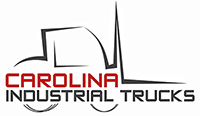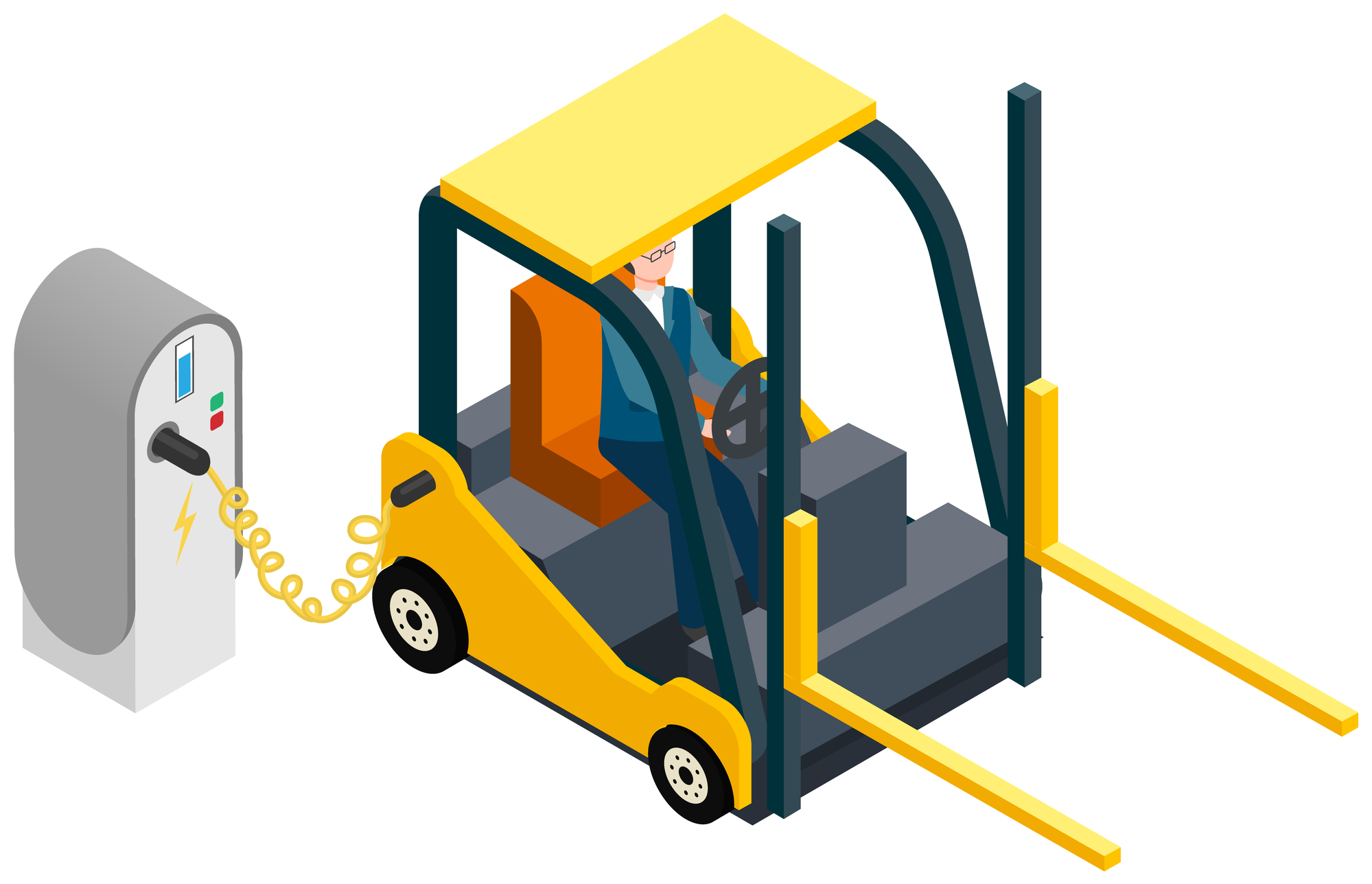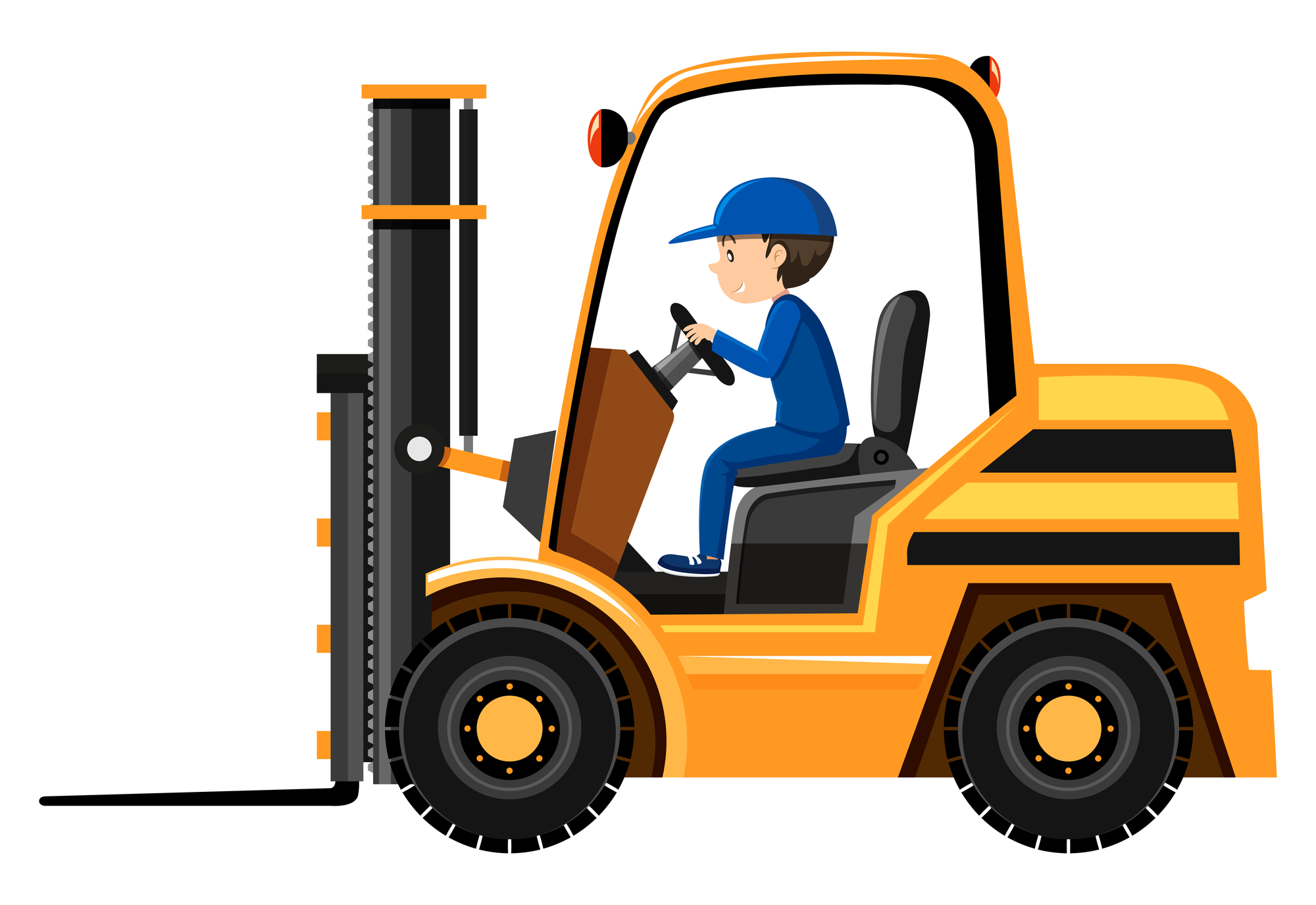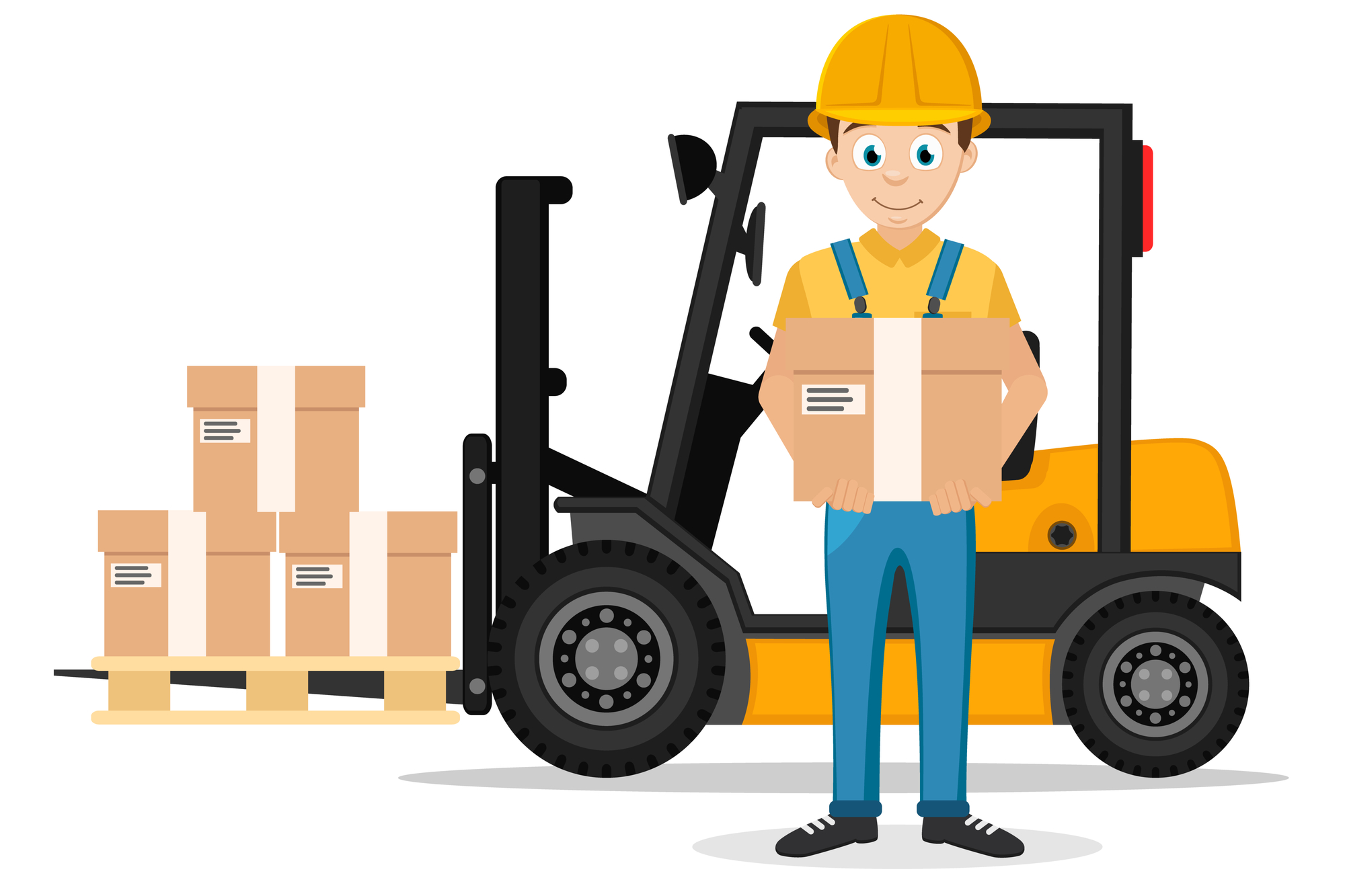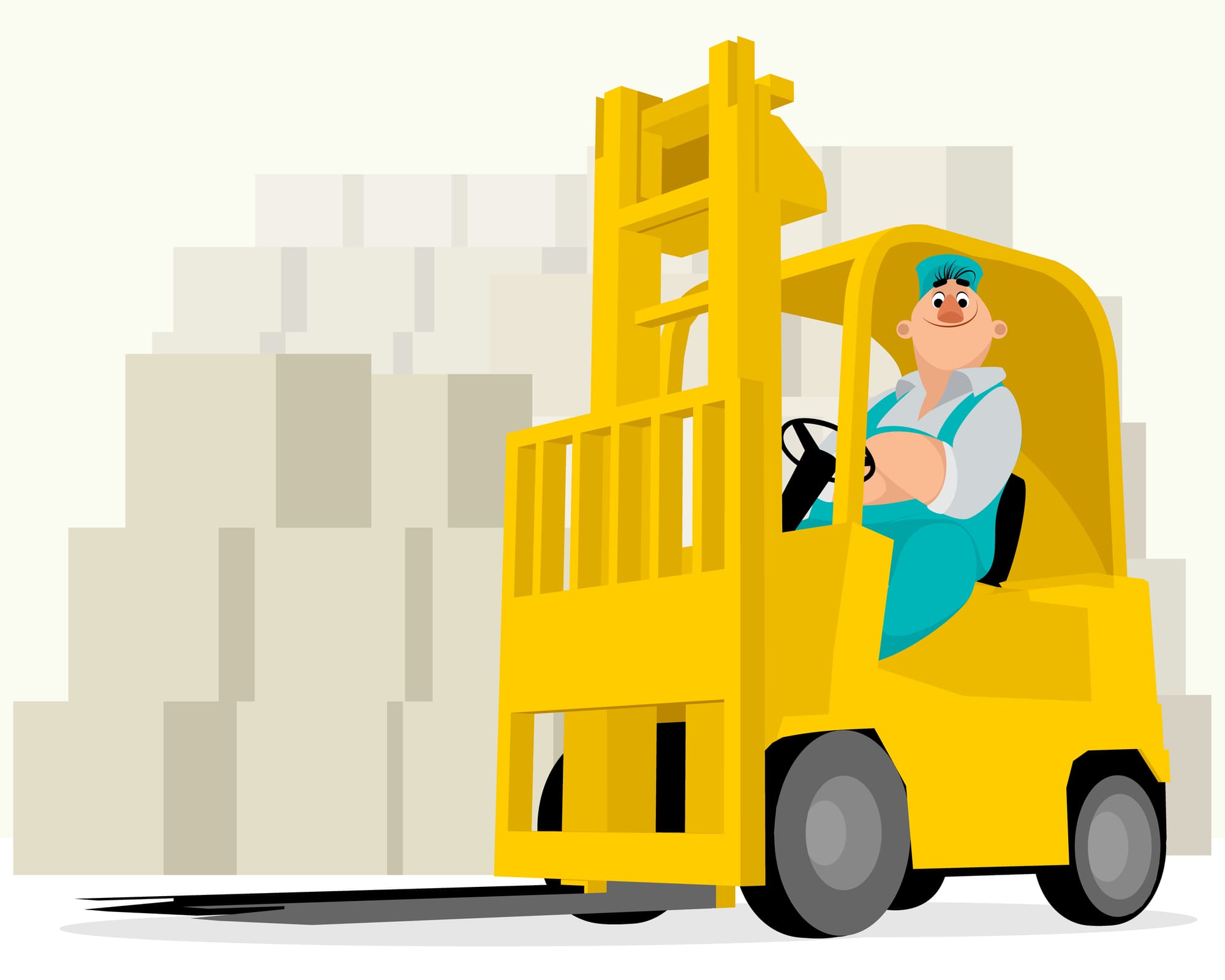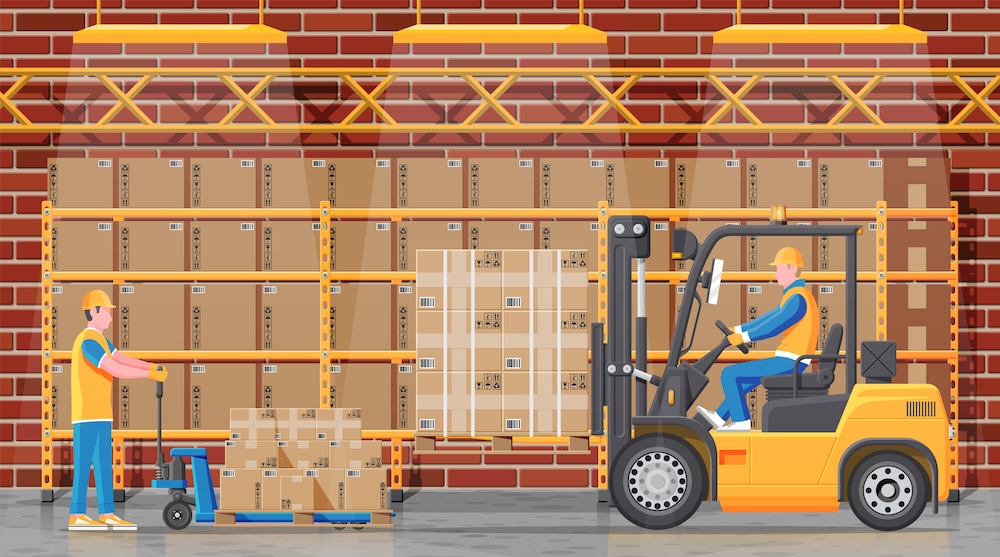Tips to Help Prevent Forklift Tip-Over
11/24/2020
CITrucks
There are always risks in managing heavy machinery, a forklift tip-over is one such danger, but with the proper measures it can be avoided
The last thing you want at your workplace is an employee severely injuring themselves in a machinery accident. When that accident involves a forklift, you could also be risking the goods you're responsible for.
The three most common types of workplace incidents involve a forklift. It might overturn, pin or crush a worker, or the worker might fall from it. The worst of these accidents can injure your employee, damage goods, as well as damaging the forklift!
Here are several tips to avoid a forklift tip-over and prevent other forklift accidents.
Safety First
One of the most important steps to operating a forklift safely is receiving the appropriate training.
Whether you're an experienced operator looking to improve how you train others, or a new operator starting your forklift certification, getting the right training will be key to avoiding workplace incidents. If you're an employer or manager, it is required under the law that you provide adequate training and a safe environment for your employees.
Forklift operation training should include a hard-written test, a performance evaluation on the equipment, and an understanding of the OSHA standard regulations.
Avoid Too Heavy a Load
The main reason a forklift tip-over happens is that the center of gravity is compromised. This can happen when the load is too heavy for the forklift.
A forklift's capacity ranges between 3,000 up to more than 70,000 pounds. Its data plate should show the forklift's capacity; however, the rated capacity isn't necessarily its maximum limit.
The capacity takes into account a weight evenly balanced on the center of the fork. If half of the weight is hanging off, as would happen with a wide or long load, then the forklift operation could be compromised.
Stabilize the Weight
Along with avoiding too much weight, you should make sure whatever you load is balanced on the forks. Too much to either side can cause the forklift to overturn and cause significant injury to the driver.
There is also a chance that the load could fall off of the forks and either get damaged or run over by the forklift.
Along a similar vein, take care when driving on a slope, as the incline or decline can affect the weight's distribution as well. Tilting the mast backward can help give extra stability in these cases.
Use a Pallet
One of the worst things to do when managing heavy equipment is to not use the proper tools, such as a pallet for live loads. One of the most contributory reasons for forklift tip-over is a suspended load throwing the machine off balance.
Unlike a standard load on a pallet, a suspended load is more susceptible to movement. Unless the driver has experience handling them, it can cause an accident.
If you can place the load on a pallet, do so. If it has to be suspended, try to reduce how far you have to transport it to reduce the chance for human error.
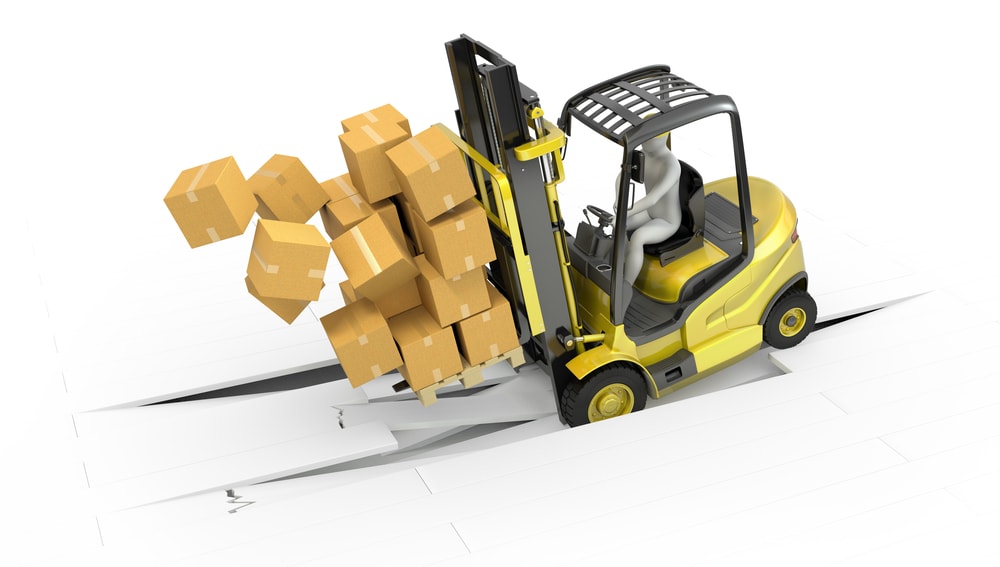
Drive on Level Terrain
When operating a forklift, it's important to drive on level terrain that isn't bumpy or has too many inclines. On the chance that you have to operate on rough terrain, a training session with your employees may be necessary.
Some things that can help avoid accidents include improving visibility and paying attention to any dips or bumps. Misjudging the terrain and the forklift's capabilities could easily lead to a tip-over.
Whatever load you're carrying also has to be securely attached to the forklift, as unlevel terrain could easily result in it sliding off the forks. A shifting load could also once again result in forklift tip-over.
Accelerate and Brake Evenly
A forklift tip over often happens when operators aren't paying attention or are in a rush. An employee should never operate heavy machinery if they are visibly tired or distracted.
Operators should reduce their speed and rotate the steering wheel slowly when making turns, as well as slowing down for bumps or on uneven surfaces.
The forks should not be fully raised up, as it can narrow the forklift's balance and result in a tip-over. Additionally, you should be aware of the space between the mast and the ceiling when traveling through doorways or underneath other objects.
If a forklift tip-over does occur, the operator should remain seated as the seatbelt and overhead guard should minimize any injuries.
Maintaining Heavy Equipment
Like any of your tools or equipment, maintenance is important for long-term use and avoiding malfunctions.
Your forklift could have a mast or lift problem and may have issues with the hydraulic system. The steering could lock up or not change direction quickly enough.
All of these issues could cause some serious downtime for your project and replacing the machine would not be cheap.
Any business that owns forklifts should routinely use an experienced forklift service technician to cover your maintenance needs, such as oil changes, brake adjustments, and more.
The right forklift repair company should be available on your schedule and come to you since heavy machinery is difficult to transport. They may also offer a replacement truck for your company to utilize while yours is undergoing repairs.
Wear and tear on an industrial or manufacturing site is a normal thing, so maintenance fees should be an expected cost when owning a forklift.
Avoid Future Forklift Tip-Over
A forklift is an investment and a necessary tool for many industries. Without them, moving heavy loads around a site becomes nearly impossible.
You can't and shouldn't have to deal with a forklift tip-over if you can help it. Hopefully, with these tips, you can avoid such a thing or other forklift-related incidents and maintain the safe work environment you aspire to.
And for anyone needing a forklift, consider a forklift Rental from Carolina Industrial Trucks.
We offer reliable rental equipment for daily, weekly, or monthly rates and have six different locations in North and South Carolina for quick delivery. Contact us today and we'll connect you with a rental coordinator in your area.
